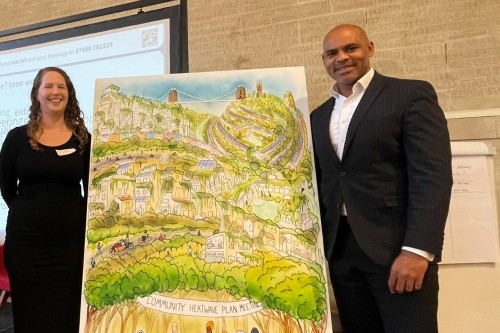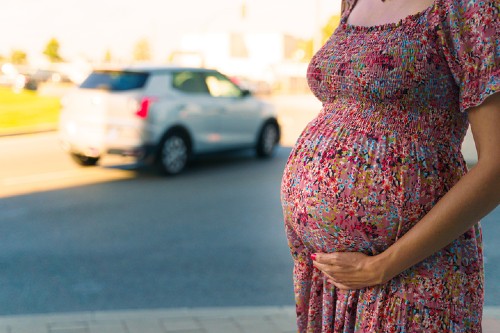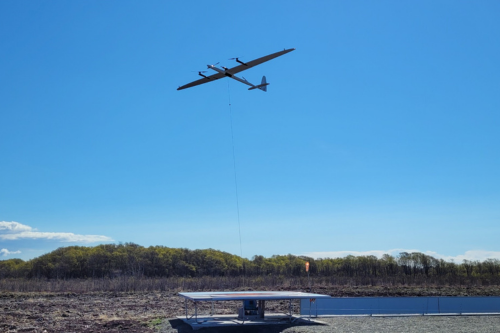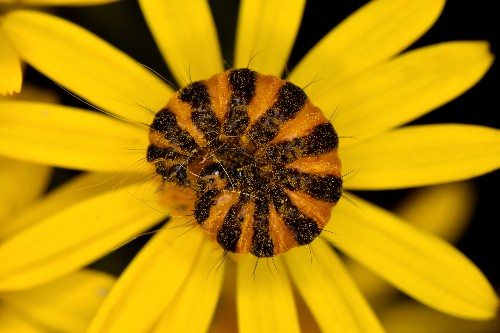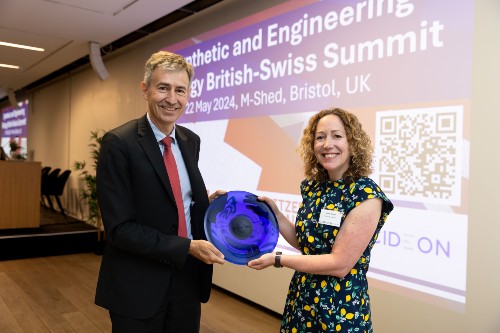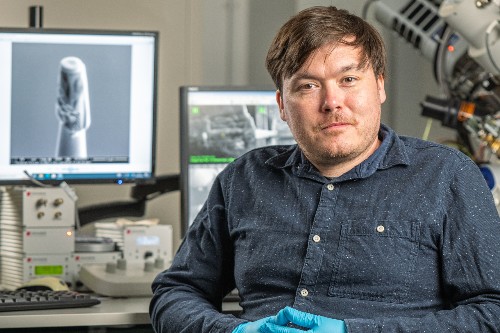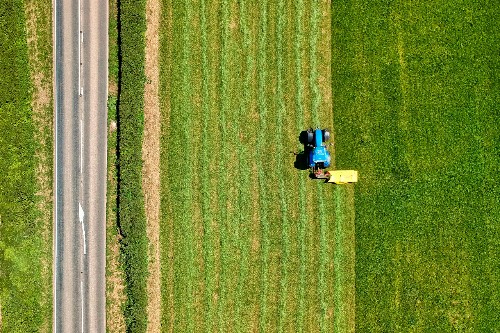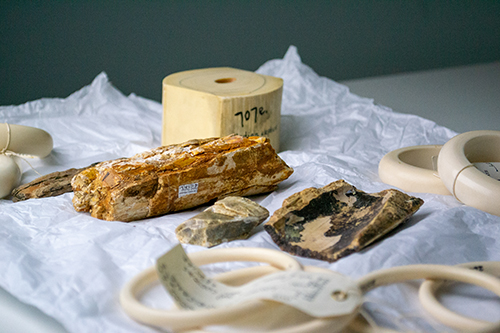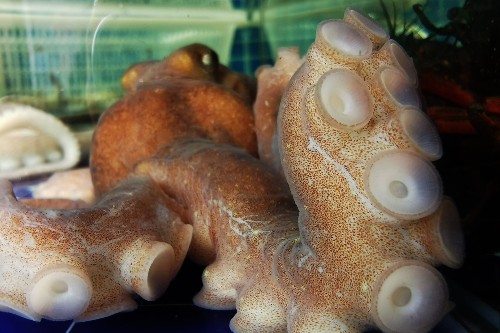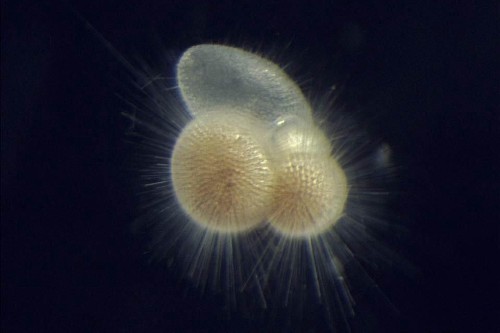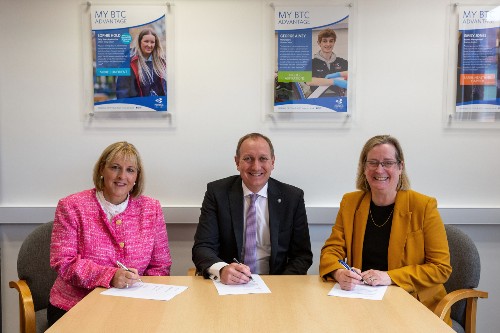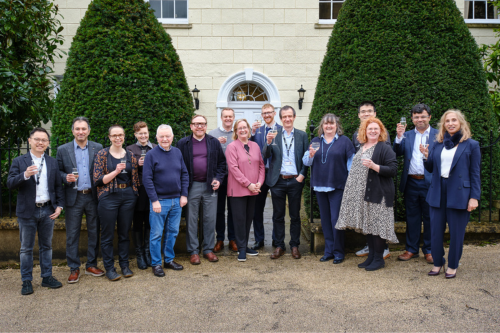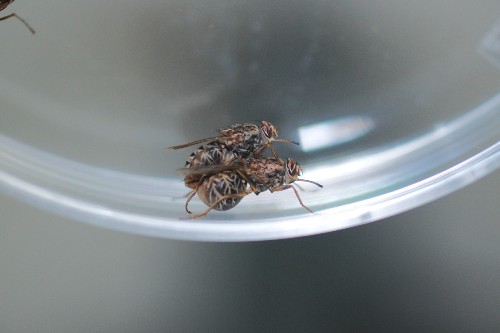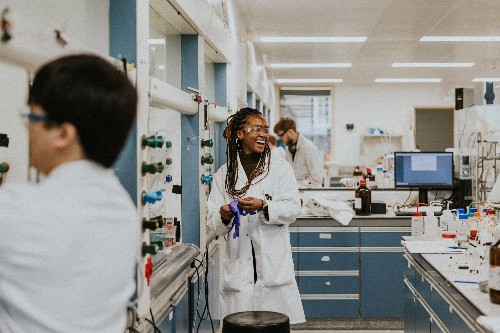Steady flight of kestrels could see aerial safety soar
A new joint study by RMIT and The University of Bristol has revealed the secrets to the remarkably steady flight of kestrels and could inform future drone designs and flight control strategies.
A new joint study by RMIT and The University of Bristol has revealed the secrets to the remarkably steady flight of kestrels and could inform future drone designs and flight control strategies.
Butterflies and moths collect so much static electricity whilst in flight, that pollen grains from flowers can be pulled by static electricity across air gaps of several millimetres or centimetres.
Amid growing uncertainty about the sustainability of timber sourcing, new research by University of Bristol experts highlights the necessity of shifting focus from simply using certified, locally sourced timber to a more comprehensive understanding of timber availability and sustainability.
In new research physicists have wielded the power of chess to design a group of intricate mazes, which could ultimately be used to tackle some of the world’s most pressing challenges.
Bristol is a city famous for its blue glass, but the beautiful Large Blue butterfly, once almost extinct, is perhaps lesser known.
A decade-long collaborative study has discovered huge genetic potential that is untapped in modern wheat varieties.
A new University of Bristol PhD will study the relationship between surfing and mental wellbeing, after a new report found the sport boosts physical and mental health.
A pioneering University of Bristol chemist who has helped more than 10,000 teachers across the UK and worldwide inspire and educate the next generation of scientists has been recognised in the 2024 King’s Birthday Honours.
A University of Bristol scientist has been awarded the Environment, Sustainability & Energy mid-career Prize by the Royal Society of Chemistry for his pioneering work in monitoring the changing concentrations of greenhouse gases in the atmosphere.
A hand-spun washing machine designed with the help of University of Bristol students will soon be delivered to 10,000 families across the developing world.
The University of Bristol is celebrating after scoring in the top 100 in its first entry into the Times Higher Education (THE) Impact Rankings.
A new study has revealed significant progress in the drive to reduce levels in the atmosphere of chemicals that destroy Earth’s ozone layer, confirming the success of historic regulations limiting their production.
The University of Bristol has been named the 54th best university in the world in the QS World University Rankings 2025.
Cities play a pivotal role in overcoming the pressing challenges posed by climate change – and the University of Bristol is ramping up efforts to support them on a local, national, and international level.
Declining snowfall is changing the seasonal patterns of streamflow throughout the Northern hemisphere boosting chances of water shortages in the summer, scientists have found.
Climate change experts from the University of Bristol are all set to champion inclusivity and ensuring a fair shift to a net zero economy at a major United Nations summit – the Bonn Climate Change Conference in Germany this week.
A baby’s exposure to air pollution while in the womb is associated with the development of certain mental health problems once the infant reaches adolescence, new research has found. The University of Bristol-led study, published in JAMA Network Open today [28 May], examined the long-term mental health impact of early-life exposure to air and noise pollution.
Using drones to harvest wind energy could play a significant role in the UK’s net-zero mission.
Caterpillars respond defensively to electric fields similar to those emitted by their natural predators, scientists at the University of Bristol have found.
Research has highlighted how weather extremes worsened by climate change are now a major national public health threat.
The University of Bristol’s BioDesign Institute hosted the Synthetic & Engineering Biology British-Swiss Summit on 22 May 2024. The inaugural event was devoted to understanding the opportunities presented by engineering biology technologies to drive innovation in healthcare, forging collaborations between Switzerland and the UK with a focus on environmental sustainability.
The UK’S fastest and most powerful supercomputer, located at the University of Bristol, is now officially online, with pioneering technology helping to make the UK a world leader in artificial intelligence.
A University of Bristol physicist, who is training the next generation of nuclear scientists to meet future energy needs more sustainably, has been awarded a research fellowship.
A new study has revealed for the first time the vital role carbon dioxide (CO2) plays in determining the lifespan of airborne viruses – namely SARS-CoV-2, the virus that causes COVID-19.
The Brigstow Institute and Cabot Institute for the Environment’s new Personal to the Planetary (P2P) Community Fellowships have brought together ten talented environmentalists for a deep and sustained engagement around the climate emergency.
A veterinary deal with the European Union could increase UK agricultural and food exports by more than a fifth, according to new research.
A new way of quickly distinguishing between illegal elephant ivory and legal mammoth tusk ivory could prove critical to fighting the illegal ivory trade. A laser-based approach developed by scientists at the Universities of Bristol and Lancaster, could be used by customs worldwide to aid in the enforcement of illegal ivory from being traded under the guise of legal ivory. Results from the study are published in PLOS ONE today [24 April].
A new robotic suction cup which can grasp rough, curved and heavy stone, has been developed by scientists at the University of Bristol.
Marine communities migrated to Antarctica during the Earth’s warmest period in 66 million years long before a mass-extinction event.
Research shows schools have increasingly stepped in as a fourth emergency service and are now the biggest source of charitable food and household aid for families struggling with the cost-of-living crisis.
Research has uncovered important new insights into the evolution of oxygen, carbon, and other vital elements over the entire history of Earth – and it could help assess which other planets can develop life, ranging from plants to animals and humans.
Live performing arts are facing an existential threat from a range of potential global shocks unless there is significant and sustained investment in resilience planning, according to a new international study.
An exciting agreement aiming to reshape the educational and economic landscape of the South West in pursuit of green goals has been signed by the University of Bristol and Bridgwater & Taunton College.
Bristol-based maritime engineering start-up WingTek, in collaboration with the University of Bristol and the National Composites Centre, has won a £2.2m innovation grant.
A special prelaunch event was held for the UKRI’s new Innovation and Knowledge Centre (IKC) REWIRE at the University of Bristol on Tuesday (12 March).
The fertility of both female and male tsetse flies is affected by a single burst of hot weather, researchers at the University of Bristol and Stellenbosch University in South Africa have found.
Hundreds of talented scientists and engineers are set to advance solutions for some of the world’s most pressing challenges, ranging from reaching net-zero and developing sustainable energy to improving digital security and making the latest health breakthroughs.
A new cutting-edge energy storage technology has been developed by green energy company Superdielectrics Group Plc. This new technology stems from an ongoing collaboration with leading researchers at the University of Bristol who identified and validated the key mechanisms involved.
An engineer who is working to improve the provision of safe drinking water in Sub-Saharan Africa presented her research in Parliament this week as part of the STEM for BRITAIN initiative.
University of Bristol academic Professor Sarah Ayres has been elected as a Fellow of the Academy of Social Sciences in recognition of her significant contributions to the field of social sciences.
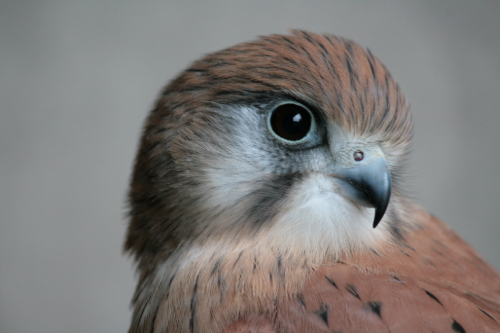
.jpg)


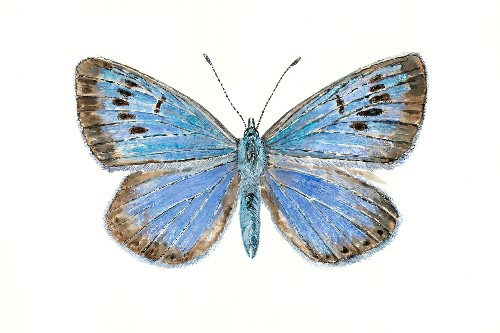
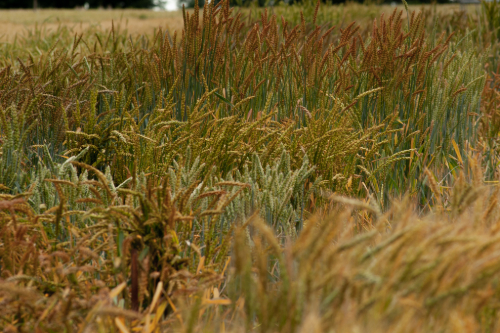





 Jungfraujoch station in Switzerland - credit jungfrau.ch.jpg)

